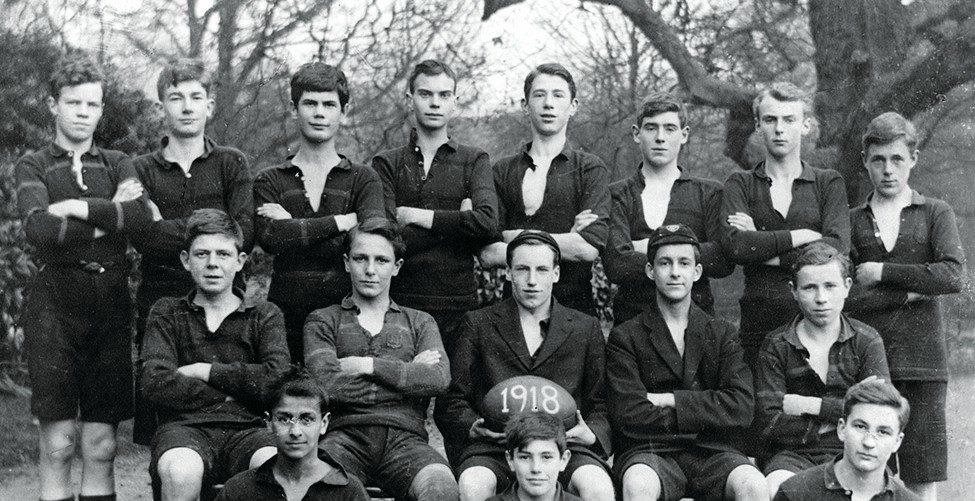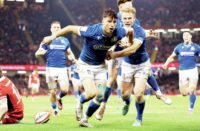A weekly look at the game's other talking points
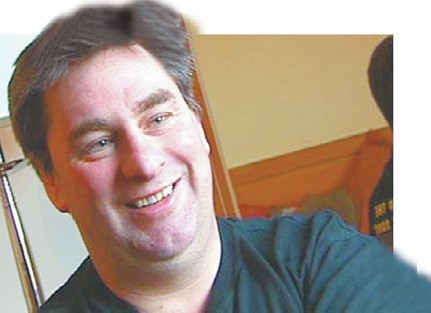
THIS column has long argued there should be more acknowledgement of Eric Liddell, the rugby player, to sit alongside the world-famous Olympic athlete who wouldn't run on Sundays but ended up nonetheless winning the Olympic 400m title at the 1924 Olympics in Paris.
So a hat tip to the SRU who welcomed the New Year by inaugurating Liddell in their Hall of Fame, January 2 being the 100th anniversary of Liddell's Scotland rugby debut. In their citation the SRU rightly emphasised his sporting ethos generally which they consider illustrate perfectly the values that rugby should still aspire to.
As a teenager at Eltham College in Blackheath, Liddell was very much the sporting all-rounder and captained the First XV in 1918 and starred for the First XI with athletics getting a look-in only for a few short weeks each summer in the lead up to the school's sports day.
And come sports day he had to share the glory with his equally gifted brother Robert – 16 months older –a sportsman of equal stature who had captained the First XV in 1916.
On the athletics track the Liddells cleaned up at Eltham in the summer of 1917. Robert won the high jump with Eric second; Eric won the 100 yards with Robert runner up; Robert won the 110 yards hurdles with Eric inches behind; Eric won the quarter mile narrowly from Robert. Eric also won the long jump with Robert in second but Robert was victorious in cross country, beating Eric in to second place.
Robert took the overall sports title – Victor Ludorum – by four points from Eric. For a while at least the future Olympic legend wasn't even the best athlete in his family or indeed school house!
Both went to Edinburgh University where it was training on the athletics track throughout the summer of 1921 that Eric's true genius for the sport started to emerge.
That conditioning saw both brothers hit the 1921-22 rugby season running for the Edinburgh University team, but for Robert it was a light-hearted swansong. He had already made the decision to head for China to help with his father's missionary work.
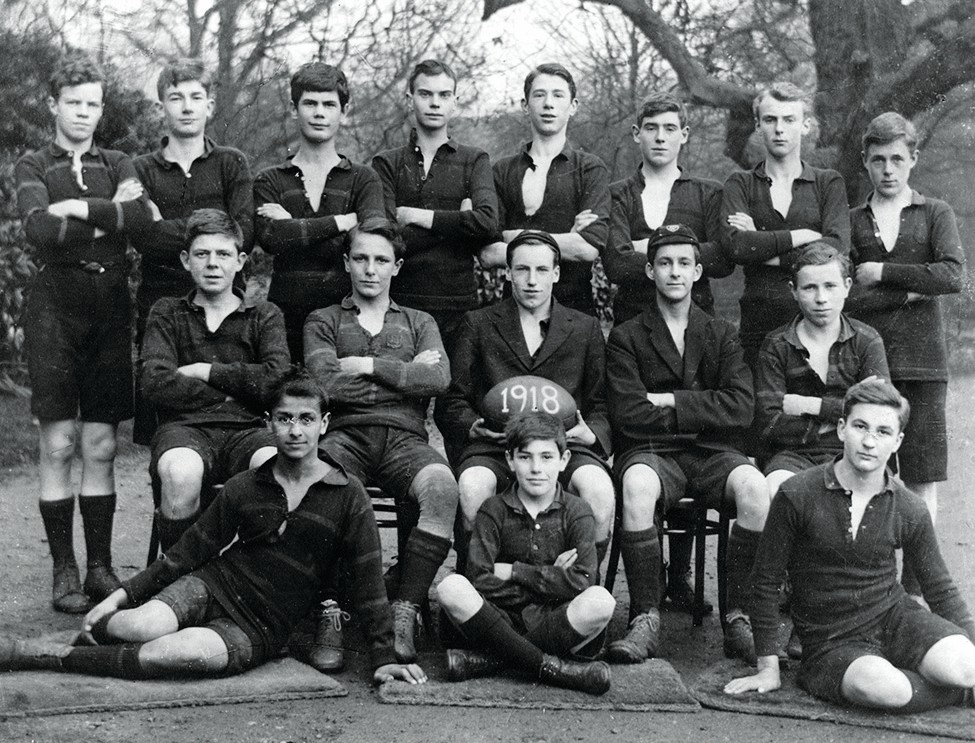
Eric, below, though, still had a good way to go to complete his pure science degree which allowed him to also concentrate on his sporting loves before he, too, would head off to China in the service of his God.
First came rugby and armed with all that track speed he was scoring tries for fun for the University and then caused a sensation in the first Scotland trial at Gala by sprinting in for five tries. The only other back to come close was Leslie Gracie, an elegant centre with a great turn of speed, and by coincidence he was also a former Eltham College student of a slightly earlier vintage. Lid- dell was to play all his seven Scotland Tests alongside Gracie.
Eltham had been founded as a boarding school to educate the sons and orphans of British missionaries. David Livingstone had sent his son Robert there while Gracie's parents were missionaries in Sri Lanka, then known as Ceylon.
Scotland suddenly had two match winners in their ranks but they were very slow on the uptake and Liddell scarcely received a pass in the final Scotland trial. Nonetheless he was picked for his Scotland debut, against France at Stade Colombes, the stadium where a little over two years later he was to achieve sporting immortality as a runner.
On this occasion 37,000 fans watched a muddy dog of a game – 3-3 with Liddell almost surplus to require- ments – but it was a start and the following month saw a much more open match with Scotland drawing 9-9 against Wales at Inverlei- th. Liddell was more involved with his strong defence earning much praise although it was Arthur Browning on the other wing who scored Scotland's two tries. Next up came Ireland and a win at last, and a try for Liddell, although a muscle strain saw him miss their final game of the season, an 11-5 defeat at Twickenham.
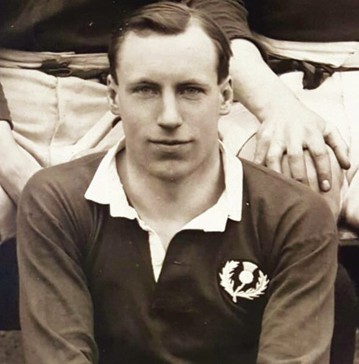
Another successful summer on the track saw Liddell and his trainer Tom McKerchar realise that an Olympic medal might be within his grasp although at that stage they were thinking of 100m and 200m, his preferred events. The Paris schedule, with its 100m heats on a Sunday, had not been announced.
Liddell scored an unusual hat-trick in the final Scotland trial for the 1923 season – two for Scotland and one of the Possibles. He then started with a bang in his first match at home to France with a fine winger's try which I reckon is the Scotland score you can see at 36 seconds on the short Pathe newsreel which has recently been uncovered. The sheer gas and all-action, pumping running style look very familiar.
Then came an historic away win in Cardiff – three tries to one for the Scots – in which Gracie scored a memorable match-winner which saw him carried from the field by Liddell and others while there was also a try for the Flying Scotsman himself, his third in three games.
Ireland at Lansdowne Road was a big test but the Scots were in fine fettle with another fluent performance and a 13-3 win in which they outscored the Irish three tries to one, the predatory Liddell making it four in four games personally with another welltaken effort.
So the Grand Slam was on if Scotland could win at a packed Inverleith where England under Wavell Wakefield were also chasing a clean sweep as it was then called. It was desperately close, two tries apiece, but ultimately the difference was a single conversion kicked by England prop William Luddington. England had won 10-8 and Liddell's first shot at sporting immortality had fallen just short.
It was a sliding doors moment. Although he made no announcement after the game, that was the end of Liddell's foray into rugby. He was going to give himself another year devoted to athletics and that would be his lot as a competitive sportsman.
In rugby terms there is a wonderful ‘what if ' hanging over his decision. Scotland were on the cusp of something great, a phalanx of expatriate Scots raised in Australia and New Zealand were about to further strengthen their side and make their back division into the most potent in the world.
How many tries might Liddell have scored in such a free-running, ambitious team with an almost unlimited supply of ball? What carnage his speed and bustling strength might have caused?
Or would he have even held his place in the side ahead of Jonny Wallace and Ian Smith who both scored tries for fun in the attack- minded Scotland team. An interesting one to mull over, but for us rather than Liddell. As a man of conviction, he never took a backward glance.

